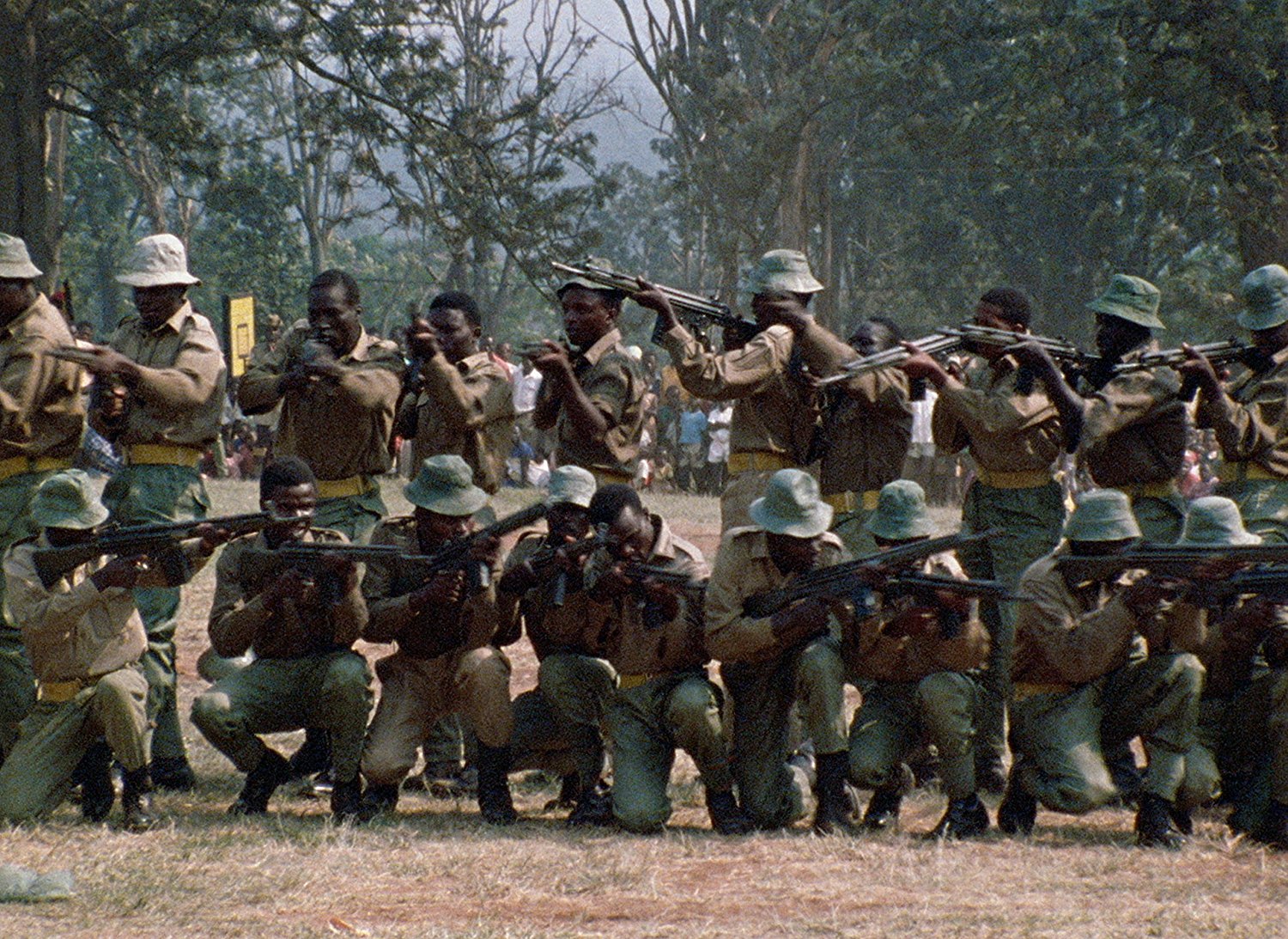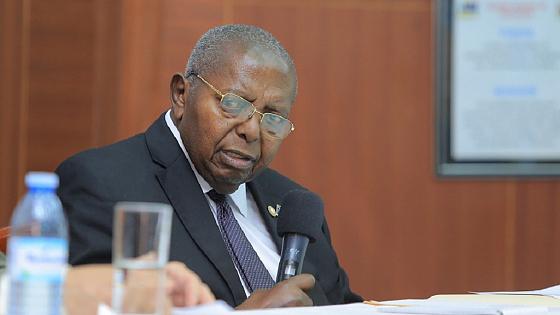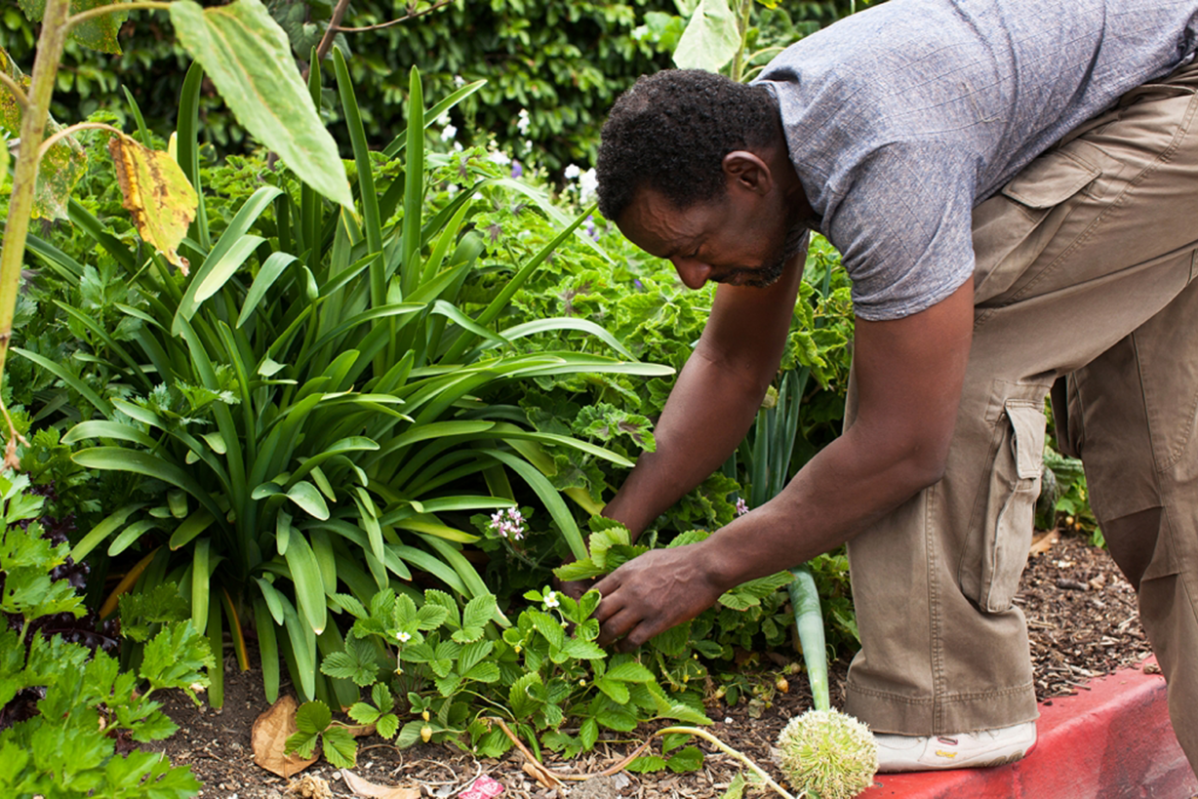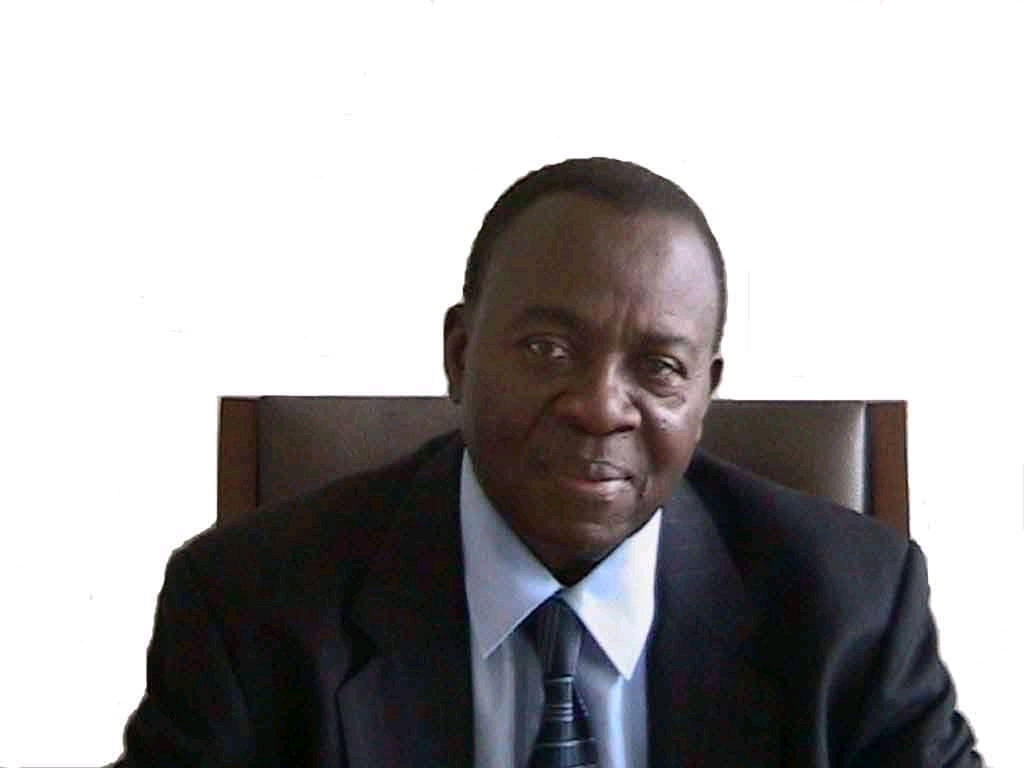Late one evening my mother returned from Mulago hospital where she was employed as a nurse, at Mwanamugimu outpatient clinic, her face distraught. “Last night they murdered the husband of my colleague!” I asked who that was again. This was 1980. A year earlier the Amin regime had fallen, but the joy of freedom was short-lived as the country collapsed into anarchy sparked by power struggles, starting with the fall of the Lule government. In 1979 shortly after the Binaisa government was sworn in a killing spree enveloped Kampala. Initially, it targeted medical workers, like Dr. Jack Barlow, the dentist, and Dr. Joseph Kamulegeya, of KCC, all of who fell prey to unknown assassins.
And now the killers had hit closer home. The gunmen had descended upon the home of Mr. and Mrs. Semambo in Nakulabye, there with axes had broken down the hard mahogany doors. Then they moved from room to room, searching for the General Manager of Produce Marketing Board. The kids were away at school but Kassede, the second last born, was there. He managed to step up onto a bicycle in a dark corridor, then take cover-up in the ceiling. Finally, the killers found their target and against all pleas to spare his life showered him a cascade of bullets. Then they left.
It was in 1950 when Herbert Semambo married a beautiful girl called Abisagi Proscovia Nabetweme. They had something in common as he had studied at King’s College Budo (KCB); and, at Gayaza High School (GHS). Then it was often said that GHS raised wives for Budo boys! Trained as an Agriculturalist and she as a nurse, they settled in Nakulabye, a Kampala neighborhood as public servants. Here they quietly raised all their nine children.
According to Baganda naming tradition, children do not carry surnames of their fathers. However, when Mr. Semambo had his fourth child he decided he should carry the Semambo name, unlike the rest, along with Dan.
At about 8, Dan was taken to the nearby Mengo Primary School, where he met a famed teacher called Mrs. Gladys Nsibirwa Wambuzi. Dan’s siblings remember him as quite mischievous, then, and he needed her strict but motherly touch. “Mrs. Wambuzi was a teacher’s teacher,” recalls Mrs. Olive Kyambadde, an old student of hers, “and Dan easily became one of her star students. She never believed in the cane but was demanding and brought out the best from her pupils.”
Grateful, later in life, Dan would remain close to Mrs. Wambuzi who went on to start Greenhill Academy. In 2004, a year before her sudden death, Dan, together with some of her famous students who include William Kalema Jr, Justice Kiryabwire, Dr Edward Kayondo; the Mengo Primary students organized a 50th-anniversary celebration in recognition of her impact on their lives.
If Dan was mischievous and could easily get in trouble he had something else going for him. His great grandfather, Katale, was the elder brother to the long-serving Baganda chief, the Ssekibobo Hamu Mukasa. In 1902 Hamu Mukasa had accompanied Buganda’s premier, Katikiro Appolo Kagwa, to attend the coronation of King Edward VII, becoming the first Ugandans to visit Europe.
Mr. Semambo grew up in Hamu Mukasa’s home at Mengo, along with the later composer of Uganda’s national anthem, George Kakoma. Dan would inherit the prodigious musical gifts that run through this family. Blessed with a rich tenor, as soon as he was done school he would run up the hill to sing with the Namirembe Cathedral Choir. “As a little boy on almost all weekends, Dan was here practicing and singing through all church services,” remised later one of the Cathedral choir patrons.
All the Semambo children after finishing primary school would progress on to KCB, their father’s old school. But when it came to Dan’s turn, he was advised to opt for St Mary’s College Kisubi (SMACK). “If you are all in one school it will spoil you,” Dan told this writer, curious how given his strong Anglican background he ended up in a rival Catholic institution.
Dan would never look back on his time at SMACK. He joined with Dr. Alex Coutinho- who would later go on to become a global leader in HIV/AIDS prevention. “Dan was a very sociable character,” Dr. Coutinho recalls. “We had a tight-knit buddy group called “Kikati”. Dan was a member of the school band, Skylax, and was in hot demand as a dancer and soloist. He was very good at crooning ligala lyrics, popular at the time. He was also a sportsman, played tennis, and enjoyed the drama.”
For his A’level Dan joined Makerere College School (MAKOS), and it is here that he met another famed teacher- mentor called Mr. Edward Kasolo- Kimuli, who took him on as a son. The two would remain particularly close, such that when Dan heard his former Headmaster was ailing, he hurried to him in his retirement home in Buloba. They had a great visit, which closed with prayer.
Life is a series of decision-making, consciously or unconsciously, some with positive others with a negative impact on our lives. In 1978 Dan joined Makerere University to undertake a degree course in Veterinary medicine. One day as a resident of Nkrumah hall, he made the best decision ever of his life. Although he had grown up in church circles as a choir boy; he had never received Jesus as a personal savior. Having heard “For God so loved that he gave his one and only Son, that whoever believes in him shall not perish but have eternal life” ( John 3:16), Dan accepted Jesus and became saved- omulokole!
It is said that when the man Saul who once used to persecute Christians accepted Jesus as his savior one person scoffed, “Isn’t this the same man who caused such devastation among Jesus’s followers..” (Acts 9:21). Dan, the once crooner of naughty lingala lyrics now, too, made a complete about turn in life, “After getting saved he was always on fire preaching the Gospel,” recalls Damoni Kitabire, his year mate and later Senior Economist and Country Manager Africa Development Bank. “Whenever he met anyone he would start by asking walokoka- are you saved!” This zeal to win others to Christ would permeate Dan’s life in everything he did to his last days.
The other change in Dan’s life is that he would now use his musical gift totally for Christ’s kingdom. At the university were a number of gifted musicians like John Sebutinde, Julia Semambo, Ruth Kawuma, Rita Mukwaya, Charles Male, Apollo Gessa, and others. These, along with Dan, joined hands in a praise band they dubbed Joint Heirs. Dan became one of its lead soloists as it toured churches and schools.
Upon graduation to put his veterinary skills to work, Dan went around Uganda teaching farmers modern livestock keeping. One particular rancher, Mr Kassim Kiwanuka of Kisozi ranchers, sought him out. But Dan turned down his lucrative offer because he had decided to work for the Government of Uganda. He hoped to secure a scholarship to go for further studies. Finally, he was sponsored to attend the University of Glasgow, UK, where he enrolled for a Phd programme.
Here he linked up with Damon Kitabire, who had also moved to the UK for postgraduate studies in Economics. “We became members of a Christian fellowship bringing together African and Caribbean students,” Mr. Kitabire recalls. “Dan was still on fire for Christ and would go around preaching and encouraging members to remain strong in the faith.”
Dan’s Phd studies did not go smoothly. Usually, for those pursuing doctoral studies, the key is being assigned the right supervisor. Unfortunately for Dan, his supervisor was not very supportive, which he found very frustrating. Eventually, he decided to report the difficult supervisor to the Head of Department.
“The Head of Department after a week decided to call over the supervisor and asked me to repeat my allegations in front of her,” he once shared with Dr. Jackson Mubiru, later his best man. “Without fail, I shared exactly what I had told my head in front of my supervisor, word for word. She was so embarrassed that she resigned as my supervisor. I was assigned a new supervisor and was able to complete in time.” Dan often told this story to show the importance of being truthful. “Imagine if I had lied to the Head of Department, what would have happened when he summoned me in front of the person I had accused!”
The title of Dan’s Phd was “Actinomyces pygonese in Embryonic Loss in Cattle”! Globally there is less than 2% of university graduates go on to attain a Phd. Dr. Dan Semambo, Phd, was now a scarce commodity that could easily settle down anywhere in the West and take up a comfortable lucrative offer. However, Dan had long settled in his mind to serve Uganda, grateful for sponsoring his studies up to that point. It was a bold decision given the haphazard state of the Ugandan economy in the early 1990s. After graduating he promptly flew back and joined the public service. “I had studied so as to share my skills with Uganda, after all,” he once told Dr. Mubiru. He would never leave Uganda even as attractive offers came his way later in life.
In 1992 I was out of the country doing postgraduate work in the US when I received a letter from a friend attending Makerere University, and a member of the Christian Union. She informed me of a young dashing man just returned from the UK whose commitment to Christ was so sweeping. Based in Entebbe this young man would jump on a motorcycle and visit the fellowship and other churches, to lead in praises. He was called Dr. Dan Semambo!
One day through these encounters, Dan spotted someone. A girl called Dorah Rukare, with looks that made heads turn and tongues roll.
Dorah was the second-born child of Prof and Mrs. Enock Rukare, based at Makerere University. Prof Rukare had accepted Jesus as a personal savior while at Mwiri College. As a student at Makerere University to cement his faith he used to visit the father of the Balokole (Born Again) movement in Uganda, Simeone Nsibambi at his home in Namirembe. “How are you?” he once recalled how Nsibambi would greet him. “Are you uplifting the Lord Jesus? ”
At GHS Dorah had progressed from being a House Leader to House Prefect of Corby House, before joining Makerere University for a B.Com degree. Raised in a loving strong Christian home she carried herself royally. Immediately a bevy of boys started pursuing her, some even faking salvation, knowing her standard. But Dan, the occasional lead singer of Joint Heirs, beat off that stiff competition. After she graduated and got a job at UCB, Wadengeya, would occasionally pick her up after work and take her out.
One day while out Dan asked for a commitment. “I want you to be my friend!” She later confessed about their engagement, musing this was not the most romantic proposal ever said. “But that was Dan!” He was always a forthright man.
Dan and Dorah were coming from two strong cultures- he from Buganda and she from Ankole. Among the Baganda, the norm is for women to kneel while serving men. This beautiful custom has often been misinterpreted as enslavement by the ill-informed. Yet it is nothing but a portrayal of filial respect within the family unit. During wedding functions normally brides perform this ritual.
Dorah was counseled that since she was marrying a firm Muganda man, she was expected to abide by this ritual. At the wedding reception in Lugogo indoor stadium on May 17th, 1997, the air was ripe with expectation how this Munyankore girl would perform this first test. Then, out of the blue, once the moment arrived, to the consternation of everyone there, Dan performed a coup de grace. He knelt before Dorah! Of course, Baganda boys had always knelt for their mothers; but even more so, Baganda men do kneel for a princess. Dorah was Dan’s princess!
“They were a very loving couple,” Dr. Siima Kavuma, Dorah’s childhood neighborhood friend who lived from time to time with them recalls, “always busy but with time for each other.” God would over the years bless the Semambo with six beautiful girls.
It is common to find Born – again Christians who shun their traditional cultures, like performing funeral rites considered as heathen practices, but Dan had the presence and self-assuredness in Christ to sieve through the good and bad. When it came to naming his daughters he gave all Baganda elephant clan names. This is quite important as inter-clan marriage is taboo here and these names help. The names they chose were Nanjobe, Nankadi, Kirokwa, Nasejje, Nabisere, and Nasozi, in their birth order. Dr. Siima Kavuma was tasked as Nanjobe’s god-mother.
Dan was there for Dorah all through their almost 25 years of marriage. “When the children started going to school,” she would later remise, “It was Dan who bathed, dressed, and dropped all at school. He was the unfailing visitor throughout all their school visiting days, religiously following up on their school work and extolling them to do the best!”
A visit to their Entebbe home, as I would on occasion, was ever so uplifting. The girls, as they grew up would fill it with laughter and joy, cheered by their doting parents.
Armed with his Phd, Dan was now employed as a geneticist by the Ministry of Agriculture, Animal Industry & Fisheries (MAAIF). Soon he rose to become a Commissioner. About 2003 Dan was seconded by MAAIF to set up the National Animal Genetic Resources Center and Data Bank (NAGRIC & DB). Dan took up the offer with characteristic energy and built up this semi–autonomous agency from scratch into a reputable world renowned animal breeding facility. Then somewhere about 2015 trouble started.
By then after returning back to Uganda I too had since joined a government agency but I felt my services were being circumscribed. One day I called up Dan for a coffee and after sharing my concerns, he strongly advised me against resigning. “We still need you there,” he offered counsel. “But by the way, I am also experiencing challenges with a new Board.” While I ignored his advice and went on to resign after finding another appreciative employer, Dan’s fate did not end well. A new Board decided to terminate the services of a man who had built one of the best-run government agencies.
Throughout his years at NAGRIC & DD Dan had never been involved in any scandal whatsoever. Ugandans know all these other organizations run by the mafia and involved in fraudulent actions. Yet even after appealing to the Minister of MAAIF, the Board remained adamant.
Feeling aggrieved, Dan decided to take his case to court. On June 22, 2017, the court awarded Dr. Semambo Ush 600m in damages for unfair job termination. In spite of all this, the Minister of MAAIF ignored a court order and went ahead to appoint a new Executive Director.
In subsequent years NAGRIC & DD became a staple of tabloid news with running battles involving allegations of land fraud under her custody. Big shots, including cabinet ministers, were reported to be grabbing some of her vast ranches. Still, Dr Dan Semambo’s old job was never restored back to him. Once he showed me a letter signed by President Museveni vindicating him. Further, his award was never remitted as mandated by courts of law.
Courts of law award punitive damages to employees unfairly dismissed to curb impunity by reckless supervisors. As this is a matter of law, the estate of Dr. Semambo is still duty-bound to pursue the matter to its logical conclusion. Dan shared once with John Sebutinde his longtime singing companion how after the award he went back to his old employers and informed all, “I have no bitterness towards anyone here. But all I ask is justice!”
There is a saying that when one door closes, God opens a brighter new one. Harshly forced out of a job he loved, Dan moved on. Some friends urged him to move out of Uganda and take up an international job since as a leading Geneticist, he was eminently qualified. But Dan had long ruled out that option. His devotion to Uganda was total; he would not consider lending his skills anywhere else. In this new and last chapter of his life, I observed a certain entrepreneurial, cheeky and brilliant side of Dan I had never imagined.
One day Dan called and urged me to join a social marketing investment group. “If you invest and become a gold class member you will win a vacation in some luxury resort!” I wavered, raising my eyebrows. On another occasion I run into him riding some new wheels. “I drove this new car all the way from South Africa through Zambia,” he explained, beaming, as I gazed with certain incredulity.
No longer constrained by office he shifted back to his earlier life of going around the country teaching farmers modern livestock farming. At Uganda Christian University (UCU) he was engaged to turn around the university farm into a profitable enterprise. He started running farm clinics for schools like GHS and SMACK. He would regularly appear on TV and in papers offering farming tips. He practiced farming and during the Covid lockdown, he brought my family trays of eggs which he sold us at a bargain price.
The family also progressed: Dorah became a diplomat. One day Dan called me up to receive Nanjobe who after serving as Head Prefect at GHS was joining UCU law school. In 2021 she graduated among the top students of her class as a lawyer. On another occasion, Dan brought me Nakandi to give her tips for college life. That evening as he left us seated in a café at Acacia mall I asked where he was rushing. “I have to do practice with Joint Heirs!” He was always on a mission.
In the middle of December 2021, the country was shocked with the news of the untimely death of a new bride, Mrs. Joanne Namutebi Wabwire, daughter of the headmistress of GHS, Mrs. Robibah Kizito. I hurried for the farewell service at Ntinda church. I found there Dan ministering with the Joint Heirs band. Owing to the crowd I did not find time to say hello. But later I sent him a Christmas Greetings message. He didn’t respond, quite uncharacteristic, something I would only notice much later. Unbeknownst to me was that Dan was slowing down with a certain intrusive illness.
I only became aware of this in late February, after I got to understand he had been admitted at Case Hospital. At first I suspected Covid but after talking to Nanjobe it was ruled out. Feeling he deserved rest I postponed visiting. However, after two weeks of no apparent release from the hospital, I became very alarmed and decided to investigate what was keeping him on the bed. On Monday, March 7th, just as I was planning to visit, the most shocking news broke that Dan had passed on to eternity.
Dan touched people from all walks of life. Once I heard Dr. Coutinho share how he sang at his wedding. Well, he serenaded mine too with his Lucien Pavarotti voice! Almost he would sing at the wedding of every friend of his. A selfless man if anyone needed a ride after an event, he would offer to chauffer back one right to the doorstep. He was an evangelist who never lost the fire for sharing the Good News of salvation. “When I would travel with Dad and he happened to stop at a market place he would greet strangers with – walokka- are you saved!” Nanjobe, now at Law Development Center shared at the funeral. “If the answer was negative, Dad would light up and share the Gospel of salvation.”
Last year, when Jajja- Mama Abisaji Semambo having outlived the tragedy of her husband’s brutal murder, passed away at 94, Dan led the burial procession. He looked so buoyant with life. But Dan who has followed his mother so soon, had a favorite verse, “Bless the Lord oh my soul and all that is within me praise his holy name for he has done great thing” (Psalm 104:1-2). Looking back at the example of his life, and the way he blessed so many people, one must be grateful for him.
His rich tenor used to glide through the Cathedral singing a favorite song, “Ekisa Kyo Tekitegerekeka”. Another favorite song was “Its well with my soul.” This song was written in 1873 by Horatio Spafford after losing four of his children while at sea. Dan used to sing it with such might, gusto and force whenever he had the occasion: “When peace, like river attendeth my way, When sorrows like billows roll; Whatever my lot, Thou has taught me to say, It is well with my soul!” Till we meet Dan (RIP)!







